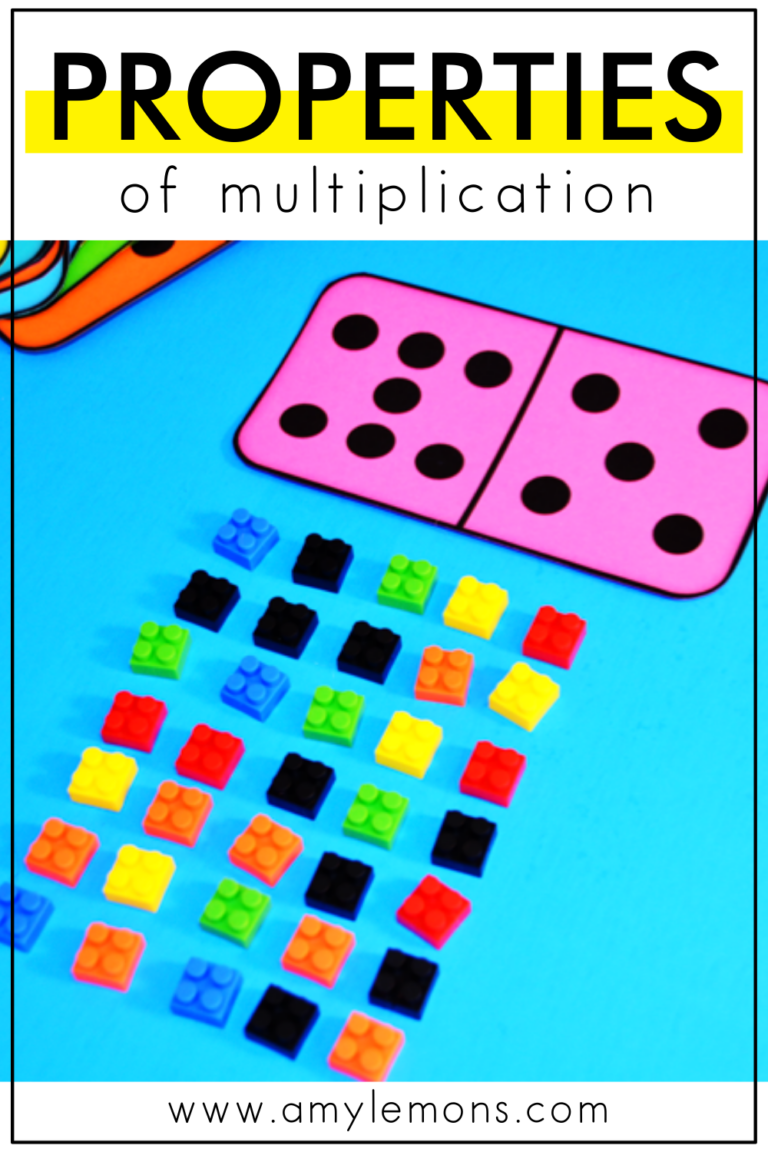
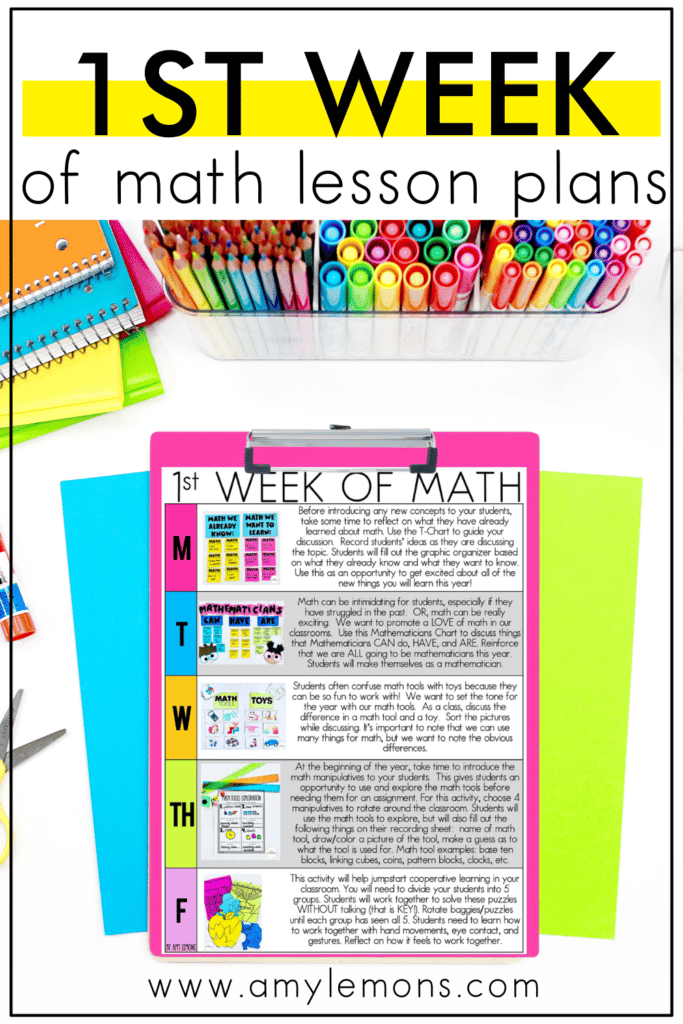
If you could describe the perfect first week back to school what would it look like? For me, I imagine a grand welcome, special surprises, fun talks, and students that immediately understand and FOLLOW all of the rules, ha! But thinking students are just going to get it is where we will go wrong! Setting foundations for the various subjects they will learn throughout the year takes time. But more importantly, it takes fun!
That’s why I like to start my first week of math with lesson plans that focus on the essence of what math is and how we use it. Jumping right in without setting students up with the foundations of what math is all about will set you up for a lot of headaches down the road. These foundational elements will ensure students are ready to hit the ground running when it’s time to solve those equations!
I always try to make activities that are engaging and interactive from the very beginning. It helps to build excitement around the subject. For introducing math at the beginning of the school year, I like to use math activities that focus on these five elements: Identifying What We Know and What We Want to Learn about Math, Defining Who Does Math, Learning about Math Tools, Playing with Math Tools, and Working Together to Solve Problems (cooperative learning).
Here’s what that looks like with this first week of math lesson plans that you’ll get for FREE down below, plus a printable to get started!
{FYI, I compiled this list with activities pulled from my unit of Back to School Math Activities for the First Week of School which includes TEN activities to get your math block started off right!}
Let’s have a look…
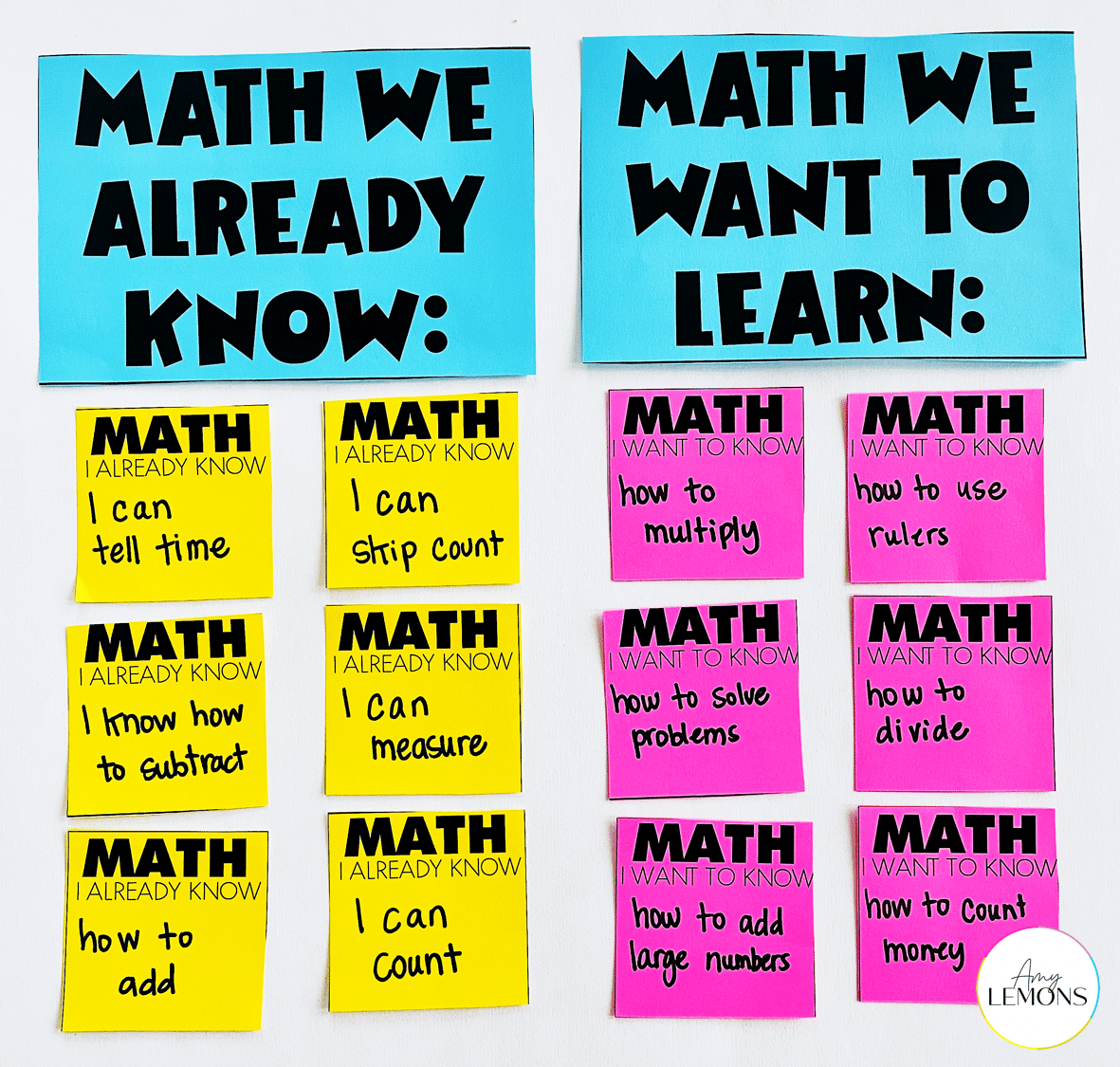
As with introducing any new skill set, you always want to gauge where your students are. The very first thing you should do is get to know what they know! You would be surprised at what you may find. But the most important piece is providing your students an opportunity to brainstorm what things they want to learn about math.
Kids are always trying to move faster and do more. They are often eager to try bigger problems or do things they see older people do, like counting money. Use what you learn to influence how you structure the remainder of your math lesson plans for the year. And this is a great opportunity to give the kids a sneak peek of what’s to come. Really build on that excitement!
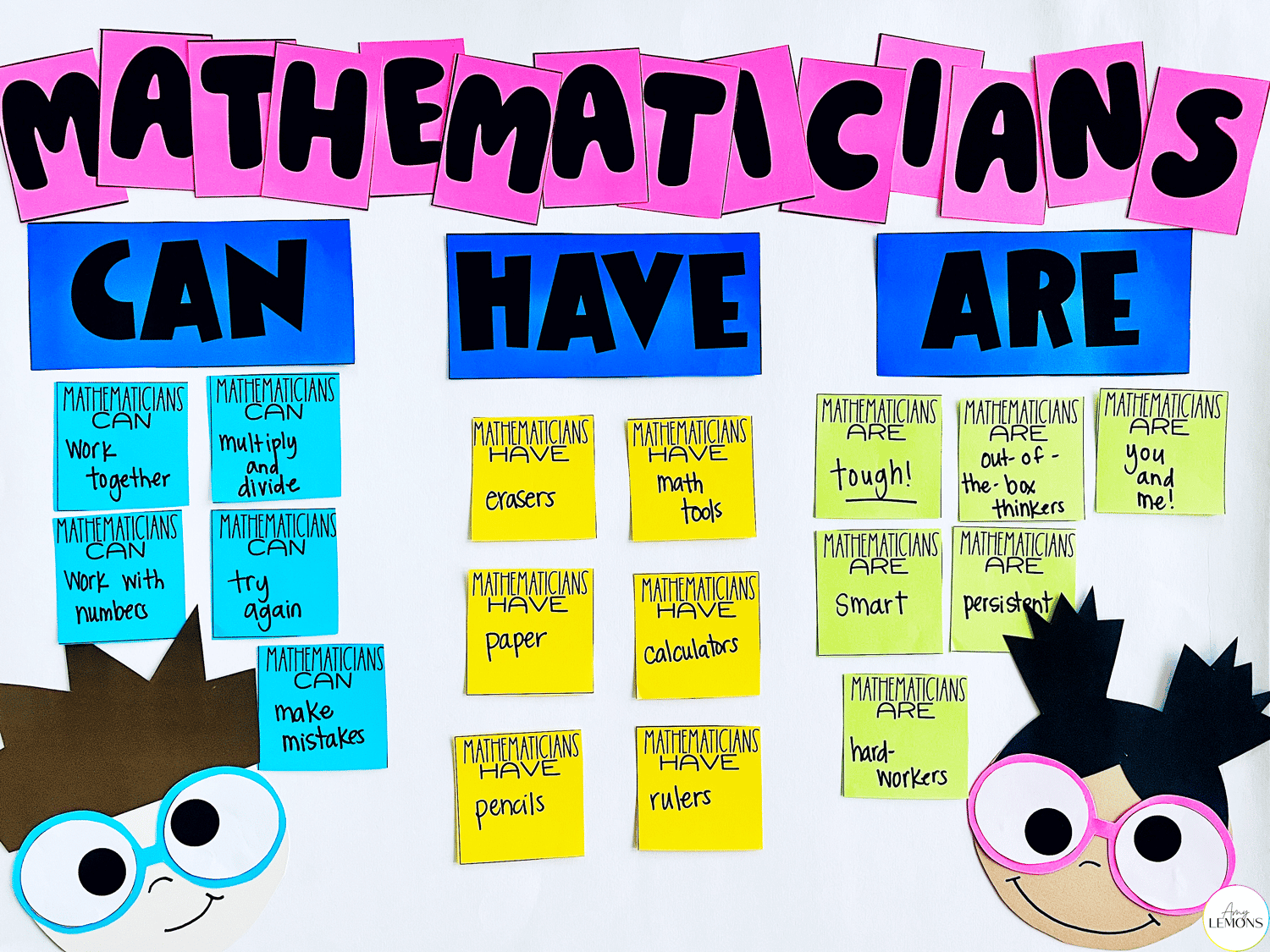
During the first week of math, it’s important to help students understand who uses math. And I’m going to let you in on a little secret, we all do! As a class, you can discuss what mathematicians can do, have, and what they are. This does not have to get too technical. It’s important for students to understand that even mathematicians make mistakes, lean on others for help, and use tools to get the job done.
This exercise is more about making students feel comfortable with jumping into the scary world of math. Students need to know that with the right tools, determination, and hard work, they can accomplish their math goals! (Psss…I included a FREEBIE Printable for this activity down below!)
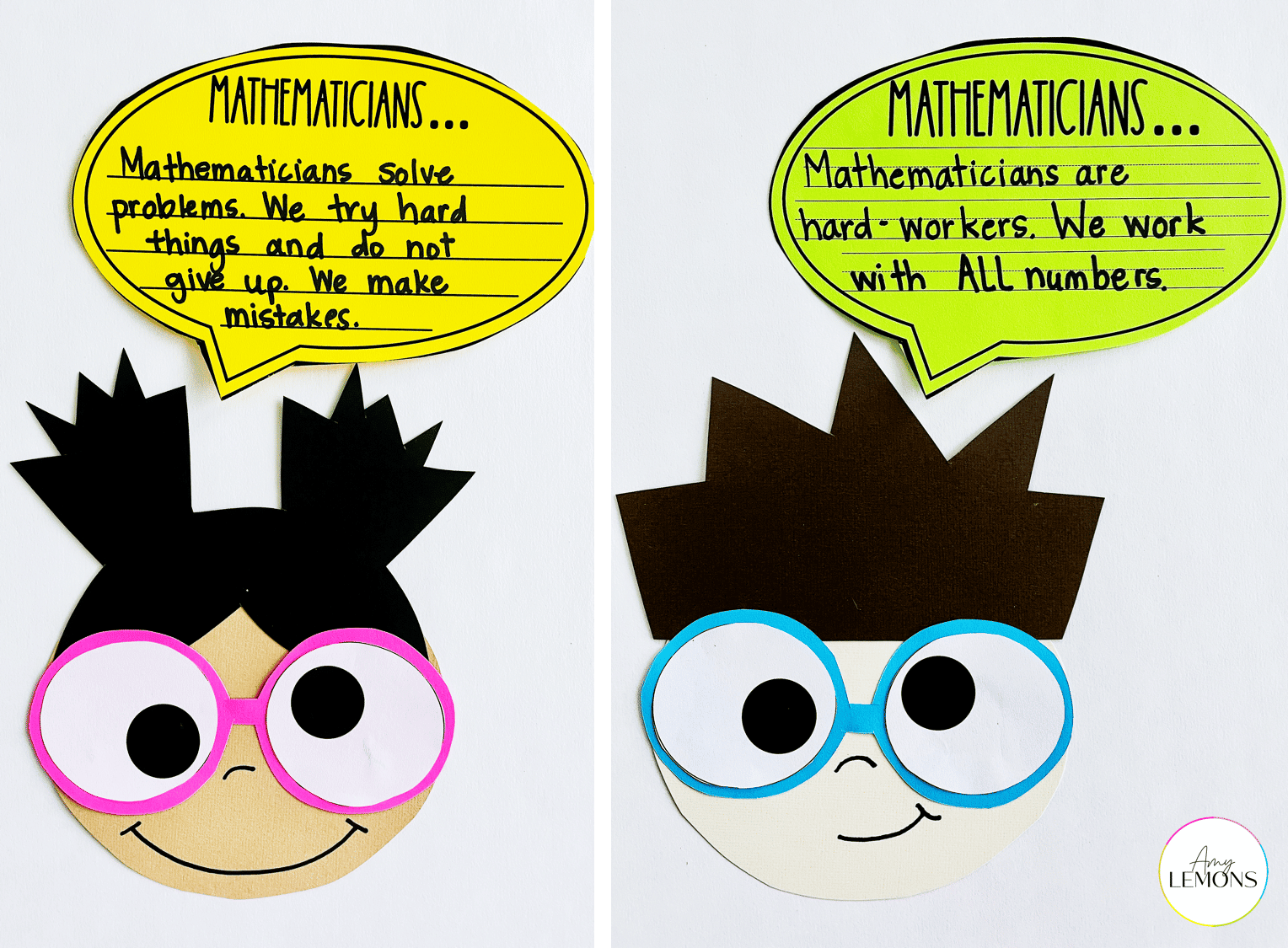
Students will be ecstatic to learn that when they are solving math problems, they are officially little mathematicians. I like to follow up the mathematician class discussion with a fun craft! Students can make a craft of themselves as mathematicians and write about what they think it’s like to be a mathematician or any other things they’ve learned from the group discussion!
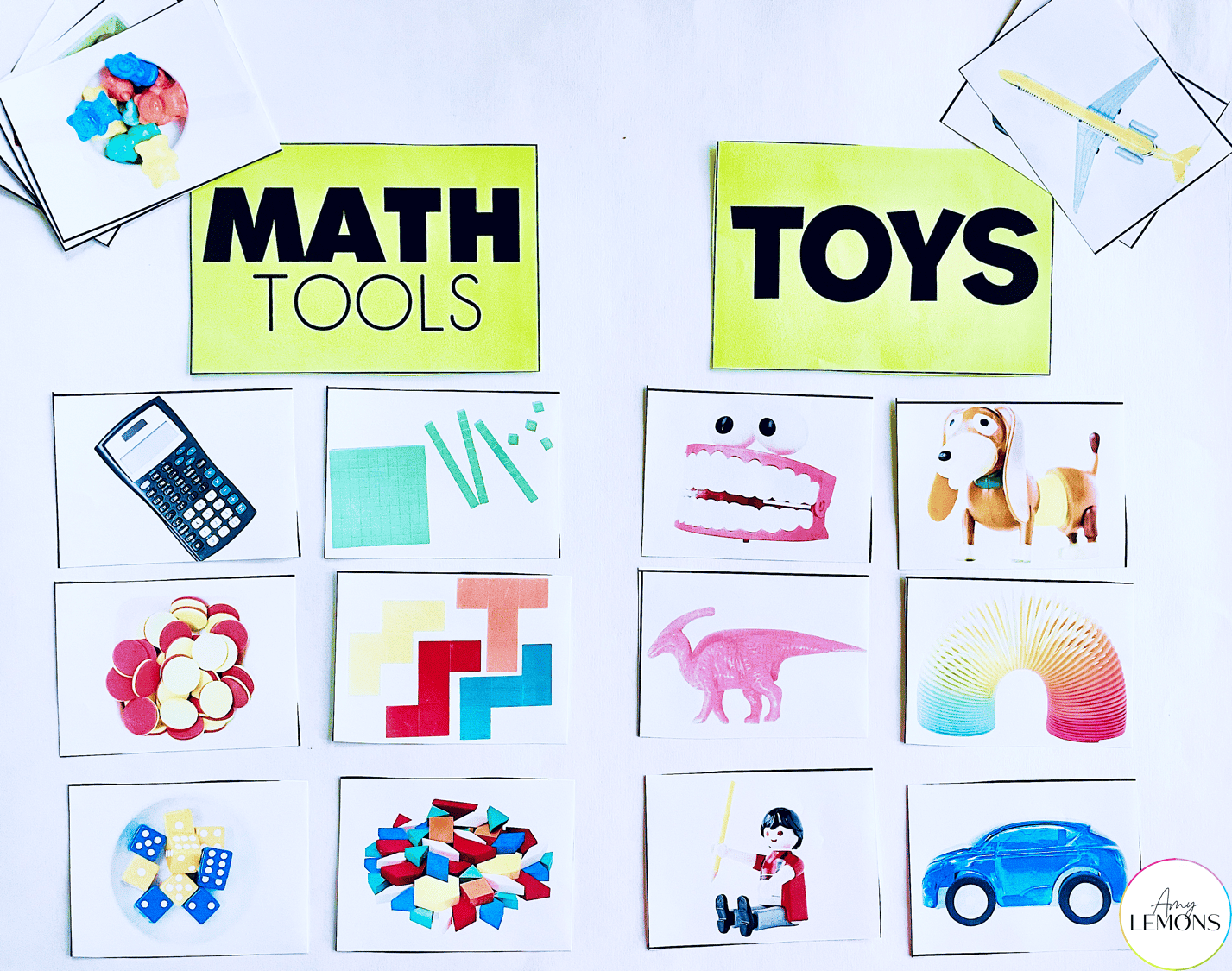
This one touches on a pain point. Students definitely need to understand how to properly use their math tools! The manipulatives we use in the classroom can quickly become toys to our precious little ones. So, we have to begin the school year with a discussion on what is for playing and what is for using as a tool for solving problems.
I like to use a “tools versus toys” sort to help students understand the difference. Using images of both, students sort them into their respective categories. This is when we really hone in on the importance of respecting the items we use in our classroom.
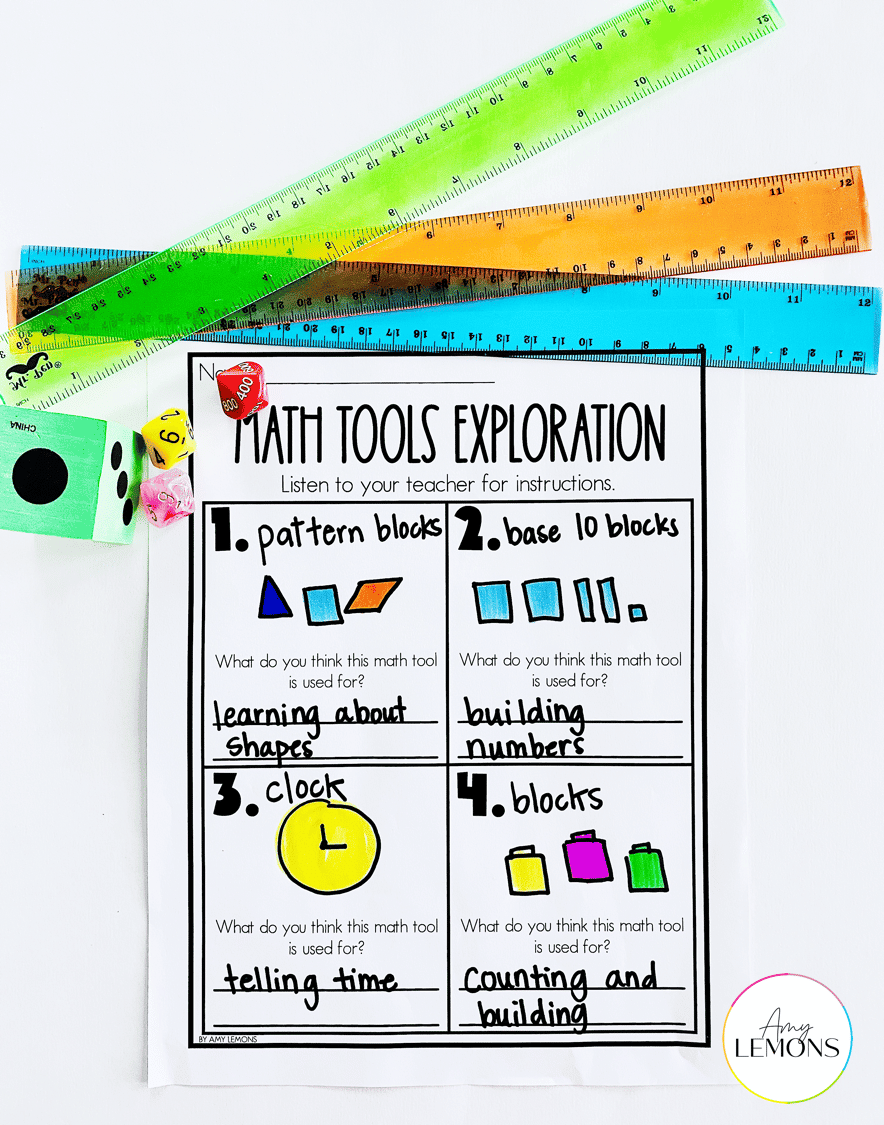
Once students understand that tools aren’t toys, we can dive deeper into the types of tools they can expect to use throughout the year. As we explore the tools we use, we can also brainstorm how those tools are used. Students can use the math tools exploration printable to create and define the tools we discuss.
The more students understand why and how we use tools, the easier it will be to use them in practice throughout the remainder of the year. Plus, it’s just a great idea to introduce and play around with the tools before we actually have to use them anyway.
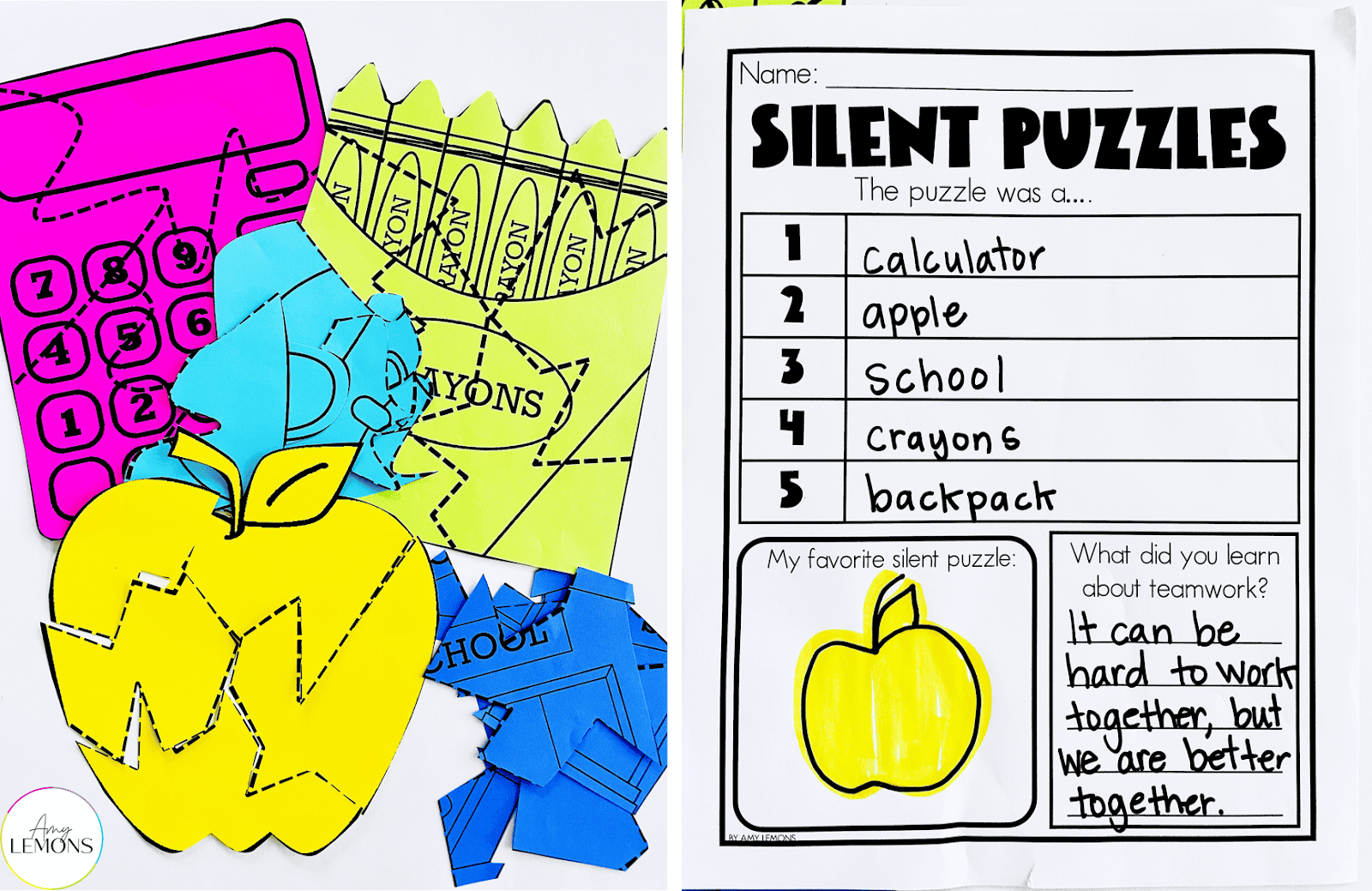
Cooperative learning is one of THE most important skills to be introduced during your first week of math lesson plans. Students being able to work together is a major key to success in the classroom. I like to include many group and partner activities, in the beginning, to promote an environment that values teamwork.
This is especially important when it comes to problem-solving which is, more often than not, a collaborative process. Silent puzzles work great for this purpose! In groups, students rotate each puzzle with each other to practice cooperative learning. When done, they are able to break off and write about their personal experience working with others.
I include silent puzzles, all of the other activities mentioned in this post, and so much more in my Back to School Math Activities for the First Week of School resource. You can get a look at what’s included right HERE!
Once you’ve mastered the foundation, consider these Back to School Math Stations to get started!
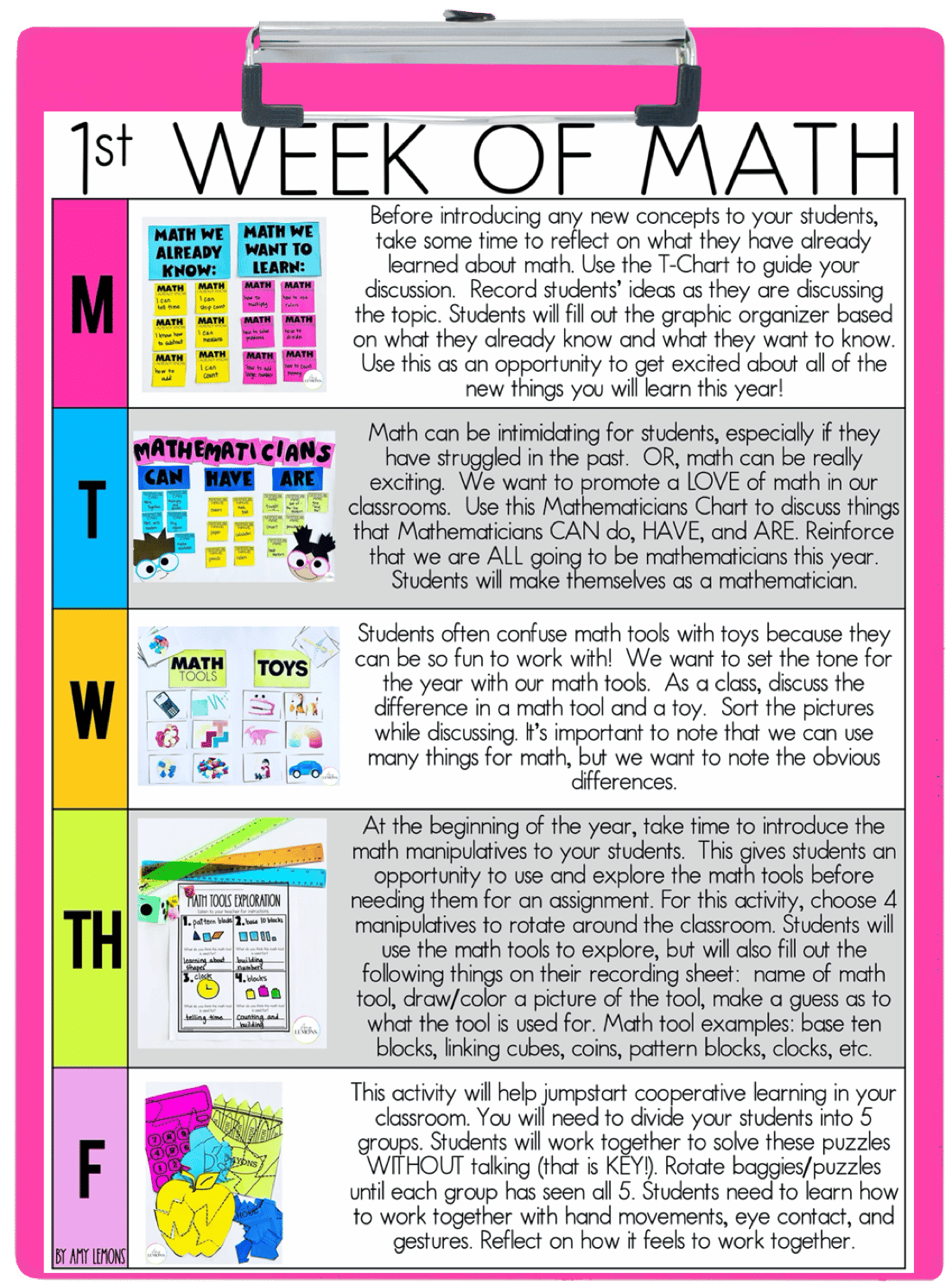
You know I won’t leave you hanging! I’ve compiled all of the lessons from this post into a full week of math lesson plans for you! I also included the Mathematicians Can/Have/Are printable to get your first week of math started on the right foot. You can grab both of these freebies using the form below!
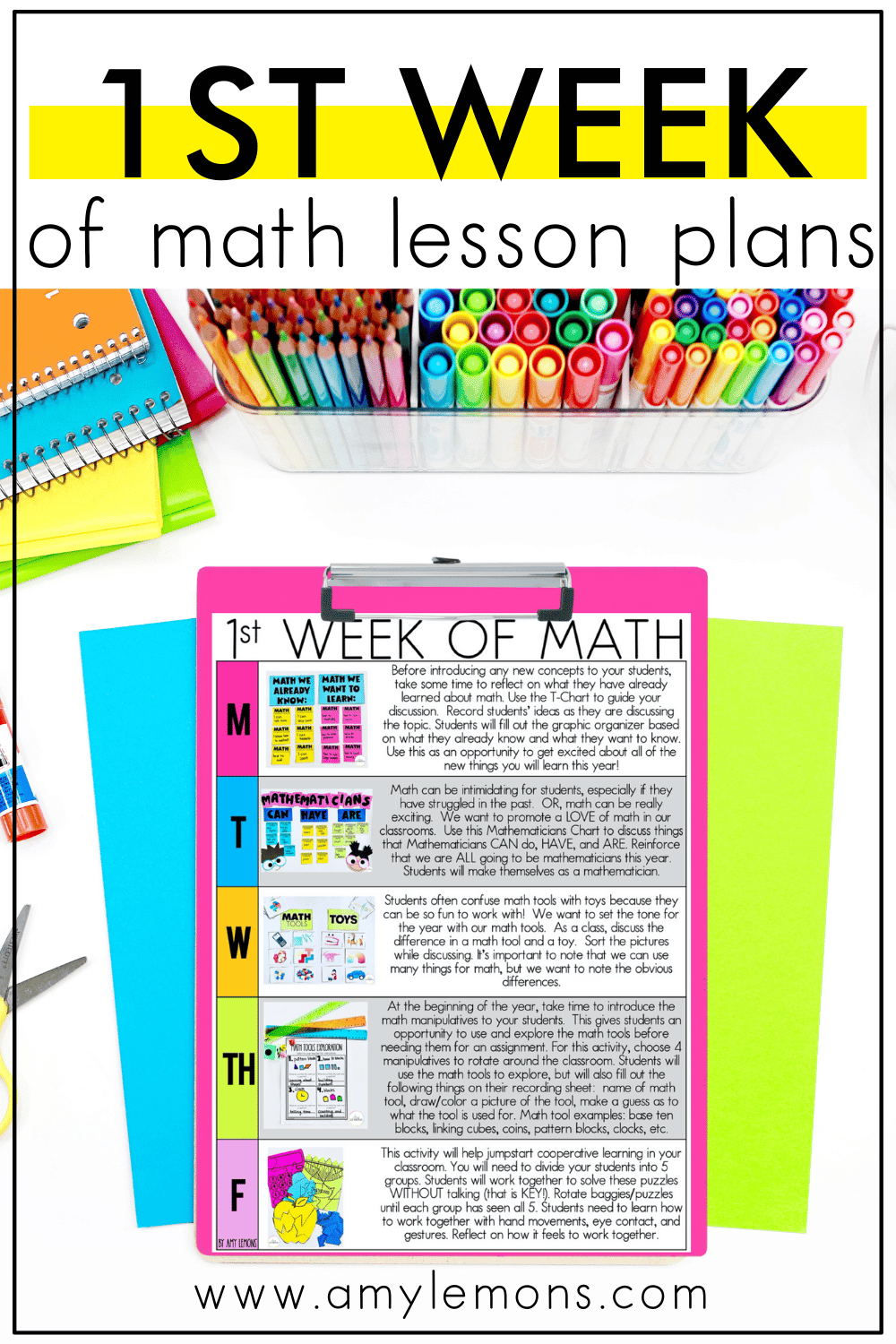

Hey, y’all! My name is Amy Lemons and I am passionate about providing students with both engaging and effective standards-based Math and ELA lessons.
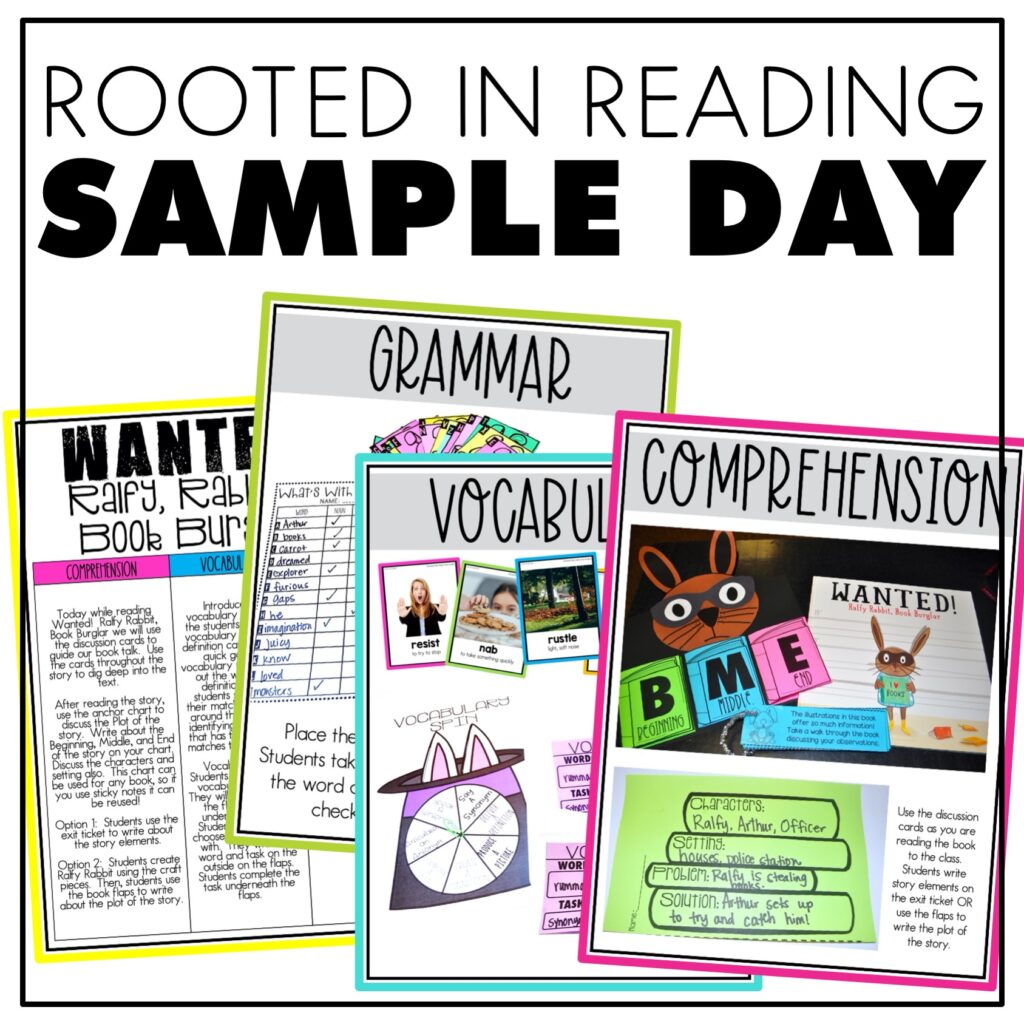
Sample a day of Rooted in Reading with these lesson plans and activities for Reading Comprehension, Vocabulary, and Grammar!


